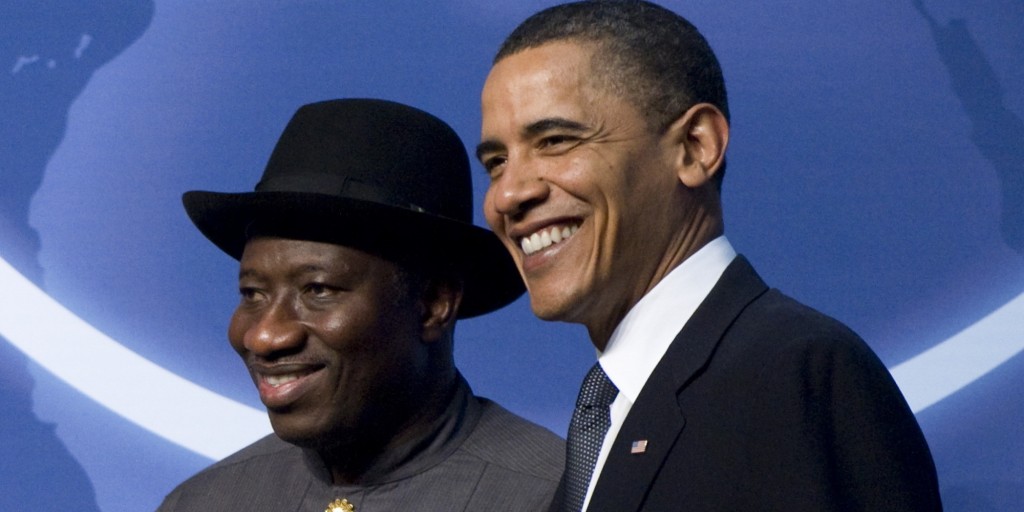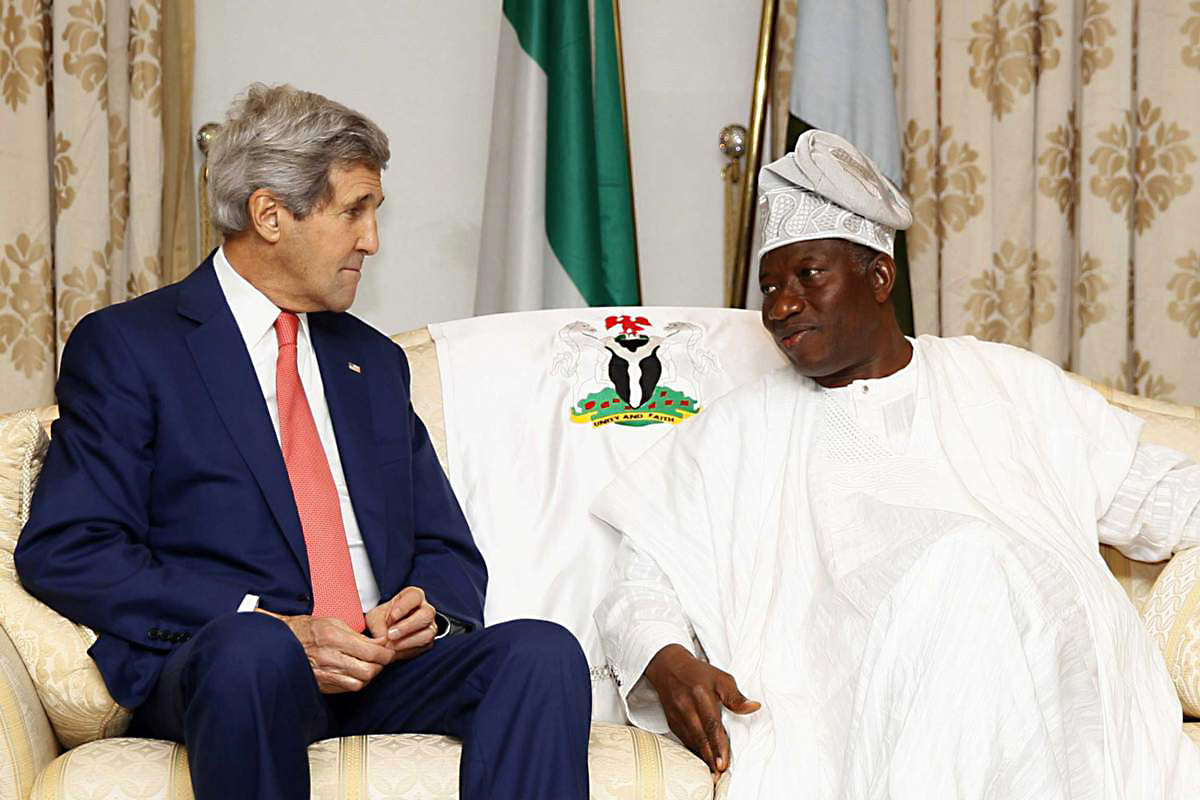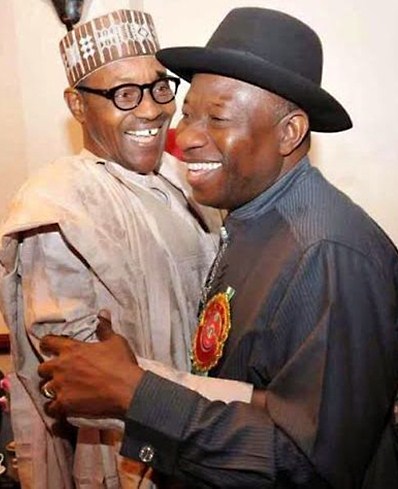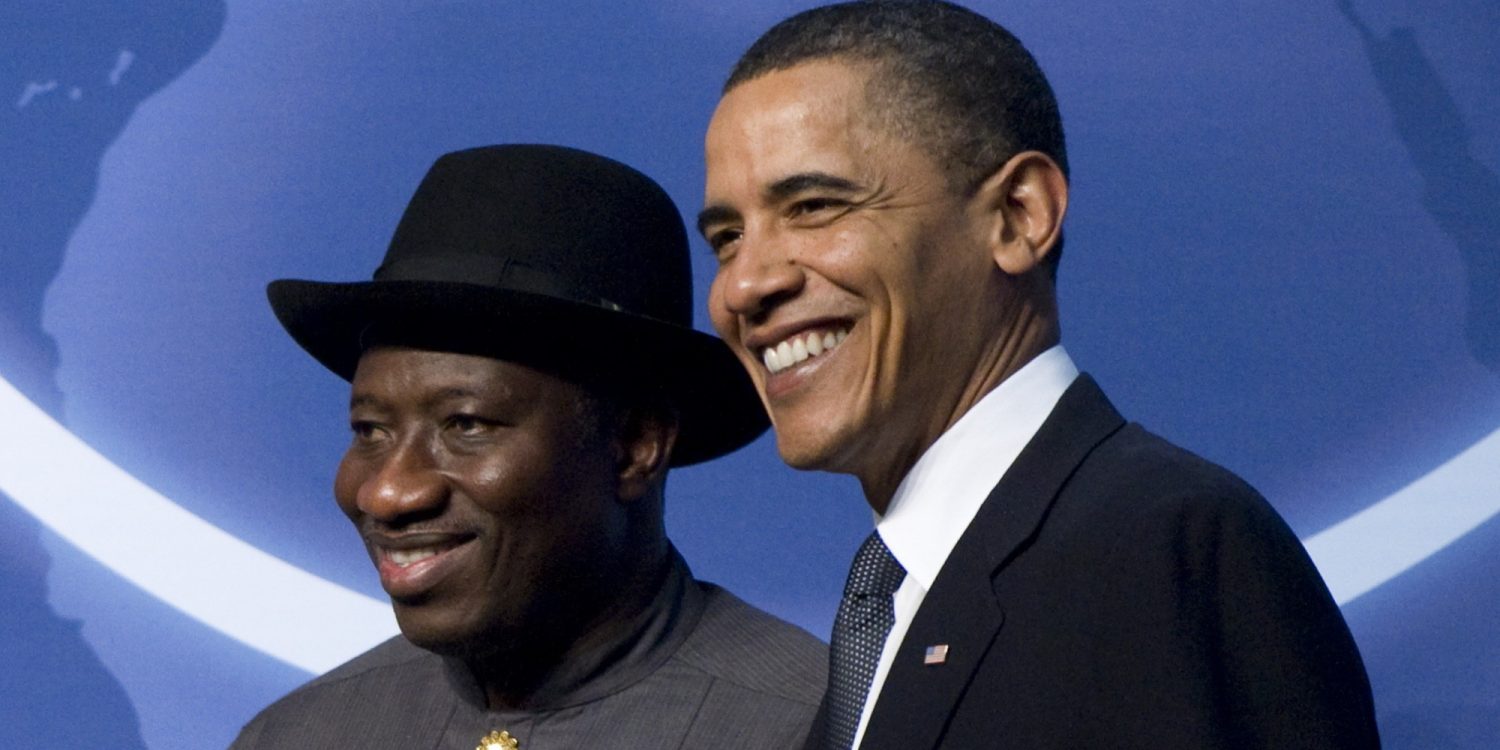Why Obama’s “interference” in the recent Nigerian presidential election

BY SOUMANOU SALIFOU
The recent fair and peaceful presidential election in Nigeria in which the incumbent president, Goodluck Jonathan, lost to the opposition candidate, former president and retired general Muhammadu Buhari, not only strengthened the democratic process ushered in by the election of another retired general, Olusegun Obasanjo, back in 1999; it also brought hope to the struggling democracies on a continent where, despite the people’s vigilance, many leaders don’t play by the rule. While the Nigerian people and leaders are due credit for this historic development, President Obama’s leadership role, arguably, played a part.
The first black president of the United States demonstrated his interest in the election by having his Secretary of State, John Kerry, travel to Nigeria and meet with out-going president Goodluck Jonathan at the State House in Lagos on January 25 amid growing concerns about the vicious attacks on military targets and civilian lives by the terrorist group Boko Haram and their impact on the looming election. Then, following the announcement of the postponement of the presidential election from its initial date of February 14 to March 28—which the chairman of the Nigerian Independent National Electoral Commission (INEC), Attahiru Jega, justified on the basis of heightened security concerns in the northeastern states of Borno, Yobe, Adamawa and Gombe—the United States made no mystery of its disappointment, saying that political interference with INEC is unacceptable. In a statement, the State Department remarked “it is critical that the government not use security concerns as a pretext for impeding the democratic process.” The Secretary of State also said: “The United States underscores the importance of ensuring that there are no further delays. As I reaffirmed when I visited Lagos last month, we support a free, transparent, and credible electoral process in Nigeria and renew our calls on all candidates, their supporters, and Nigerian citizens to maintain calm and reject election-related violence.”
Elections can, indeed, be very violent in Africa as epitomized by the April 2011 Nigerian presidential election that ushered in President Goodluck Jonathan, until then in the shadow of his predecessor, Umaru Musa Yar’adua, whose death on May 5, 2010 pushed Jonathan in the number one spot. According to the Human Rights Watch, the post-election violence that year left more than 800 dead as a result of three days of rioting in 12 northern states. The violence was reportedly instigated by supporters of the opposition candidate Muhammadu Buhari.

So, fearing a repeat of 2011, President Obama called directly on the people of Nigeria and their leaders to reject violence. In a video posted on the official website of the White House, the president said: “So I call on all leaders and candidates to make it clear to their supporters that violence has no place in democratic elections—and that they will not incite, support or engage in any kind of violence—before, during, or after the votes are counted. I call on all Nigerians to peacefully express your views and to reject the voices of those who call for violence. And when elections are free and fair, it is the responsibility of all citizens to help keep the peace, no matter who wins.”
President Obama also dispatched his top diplomat for Africa, Assistant U.S. Secretary of State for African Affairs, Linda Thomas-Greenfield, to carry the same message in person to Nigeria where she arrived the day of the election to be part of the international team monitoring the election. She also held high-level talks with Nigerian officials, and was seen on U.S. television deflating rumors about on-going election fraud.
Nigeria, the leading oil-producing country in Africa, is the largest economy on the continent with a GDP of $521.8 billion according to the 2013 estimates. It is home to the largest black population on earth numbering in 175 million with large populations in the Diaspora, including the United States where they are visible almost everywhere. Typically, the United States imported between 9% and 11% of its crude oil from Nigeria prior to 2012, which put Nigeria among the five top crude oil exporters to the United States; but that fell to less than 1% after 2012, thanks to U.S. reliance on domestic oil production. This drop notwithstanding, Nigeria—a continent-wide power that takes the lead on many issues in Africa—is an important U.S. ally. (It appears former Nigerian president, Goodluck Jonathan, has met with President Obama more than heads of state of other African nations.) The vicious attacks by the terrorist group Boko Haram—which the Jonathan administration has failed to take on until his last few weeks in office—have made the relationship between Washington and Abuja even more important, given that the United States is the primary target of terrorist threats from anywhere.
During the meeting between President Obama and President Jonathan in New York on the occasion of the U.N. General Assembly meeting in September 2013, the two leaders discussed, among other things, the need to crush the insurgency in northern Nigeria, the promotion of economic opportunities, and the protection of human rights. Already, President Obama stated United States’ support for a peaceful, transparent and credible election to be held two years later.
 Buhari’s large victory margin (15.4 million votes to 13.3) left no room for any challenge by the other side after the announcement of the election result in March. Not only did the outgoing president call his opponent to congratulate him, he also told his supporters to accept the result. For his part, the president-elect applauded the outgoing president’s quick concession: “President Jonathan was a worthy opponent and I extend the hand of fellowship to him. We have proven to the world that we are people who have embraced democracy,” Buhari said.
Buhari’s large victory margin (15.4 million votes to 13.3) left no room for any challenge by the other side after the announcement of the election result in March. Not only did the outgoing president call his opponent to congratulate him, he also told his supporters to accept the result. For his part, the president-elect applauded the outgoing president’s quick concession: “President Jonathan was a worthy opponent and I extend the hand of fellowship to him. We have proven to the world that we are people who have embraced democracy,” Buhari said.
This should bring enormous hope to not only Nigeria, but also to the entire African continent where democracy is yet to take deep roots.


